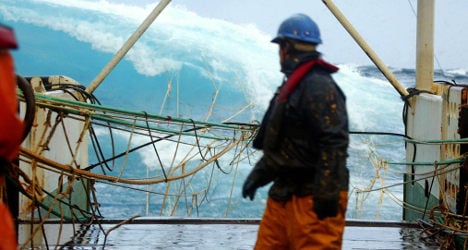Lawmakers voted down the ban by 342 votes to 326, backing a compromise motion by the main Conservative and Socialist groups to regulate the sector more closely so as to protect vulnerable habitats.
Bottom fishing with heavy trawl nets scoops up everything on the seabed, a practice environmentalists say destroys fragile ecosystems such as coral reefs which are home to a wide variety of species and essential breeding grounds.
It is used mainly by French and Spanish boats off the Scottish and Irish coasts in waters up to 1,500 metres (5,700 feet) deep.
EU Fisheries Commissioner Maria Damanaki had sought a ban in the Northeast Atlantic beginning in two years time but parliament's fisheries commission recommended instead it should be stopped only in areas identified by the Commission as especially vulnerable.
Green French MEP Jean-Paul Besset deplored the outcome, saying that "as other marine resources are run down, the logic of always more, further out, deeper won the day".
Environment group Greenpeace said the vote showed that parliament was "at best half-hearted" in its approach.
"It is astonishing that subsidized fishing vessels can continue to plough the seafloor with monster nets that crush everything in their path," it said in a statement.
"Without subsidies, deep-sea trawling would be unprofitable," it said, noting that while relatively "few fishermen in France, Spain and Portugal specialize in deep-sea fishing with trawls … their impact is disproportionately large."
The Blue Fish Europe industry group for its part welcomed the vote, saying it would help protect fishermen's jobs as well as the environment.



 Please whitelist us to continue reading.
Please whitelist us to continue reading.
Member comments